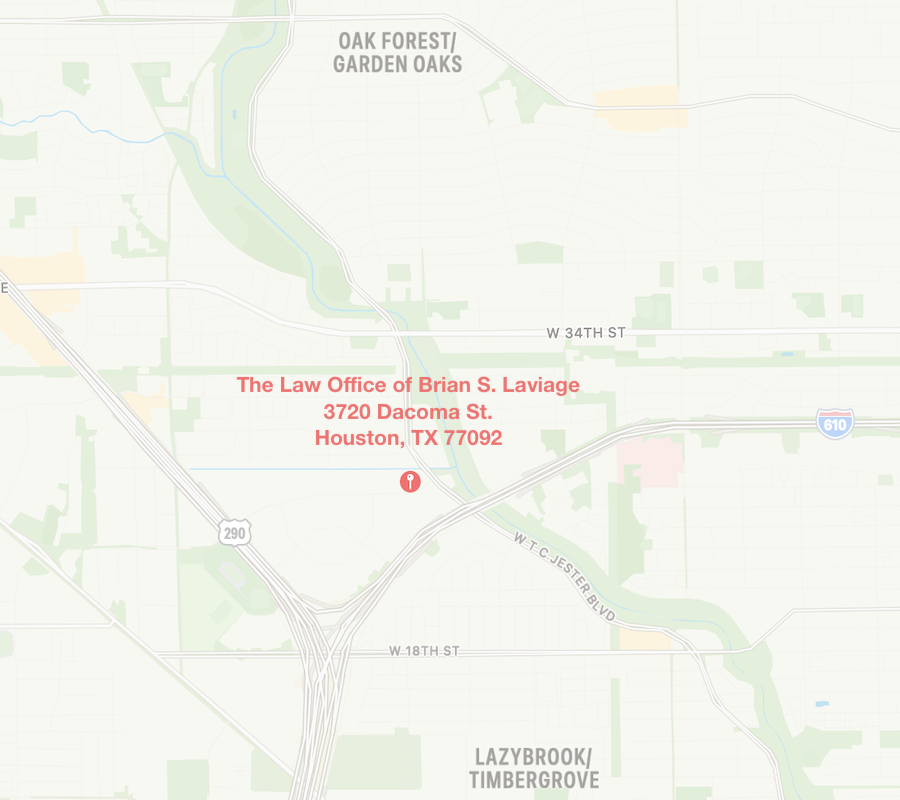
Child Arrested at College? Here's What To Do In Texas
Friday, Jun 7, 2019 by Brian Laviage
If your child is leaving for college in a few months or returning for another semester, it’s important to understand what to do if they are issued a citation or arrested while away at school. We all know college and questionable decision-making seem to go hand-in-hand, however sometimes one bad decision can end with a potentially costly arrest. This can have serious implications for your child’s academic future and personal life.
Some common crimes The Law Office of Brian S. Laviage has handled for college students include:
- Public Intoxication
- Underage Drinking, Minor in Possession and Minor in Consumption
- Driving With Intoxicated (DWI) and Driving Under The Influence (DUI)
- Assault or Battery
- Disturbing the Peace and Disorderly Conduct
- Possession of a Controlled Substance
Additionally, it is important for your child to understand their rights when under arrest. They should always be respectful to law enforcement but also aware that their interactions with police can negatively affect the outcome of their case.
Whether your child is being detained by on-campus or off-campus police, their rights remain the same: they have the right to remain silent, the right to refuse to consent to unreasonable search and seizure, and the right to legal representation.
The Difference Between On-Campus Cases and Off-Campus Criminal Cases
While different from criminal charges, it is still important for students to understand their rights when confronted by school administration when dealing with potential on-campus infractions.
Typically, on-campus cases are handled by the student judiciary services. In most instances, an internal investigation is done to determine if the college’s student code of conduct has been violated. If it is determined that a violation did occur, your child’s school record can be negatively affected including academic and social sanction such as losing campus housing, suspension, and in some cases, expulsion.
Most importantly, your child should avoid any admissions of guilt throughout the school’s investigation. In addition to the potential academic and social sanctions mentioned above, these confessions could be used against your child in any criminal case.
In the event your child is arrested off-campus and has criminal charges brought against them by the state of Texas, they should avoid a guilty plea if possible. That’s because pleading guilty can affect your child’s ability to live in student housing or terminate any scholarships they may be holding. Even if the state drops criminal charges, your child’s college could still potentially expel them if they determine the student code of conduct has been violated.
In a worst-case scenario, a guilty plea can even land your child in jail with fines, community service and a criminal record. Luckily, there are steps you can take as a parent to ensure your child’s arrest doesn’t ruin what they’ve worked so hard for in college.
Steps To Take After The Arrest
1. Pay The Bail.
Most often, we see college-aged children being arrested for drug and alcohol-related misdemeanors. This means their bail will be set after their arrest, and upon payment of that bail they will be released to await an upcoming court date. Typically, bail for a misdemeanor can cost anywhere from $500-$10,000 depending on the charges and your child’s previous criminal history. After your child’s successful appearance at their court date, that money will then be refunded back to you. If you cannot afford the bail, a bondsman will pay the bail in full in exchanged for a 10 percent fee.
2. Hire A Criminal Defense Lawyer.
It is imperative that you have a lawyer on-hand to advocate for your child’s behalf early on in the process. Resist the urge to hire a lawyer in your hometown. Your child’s lawyer should practice law in the same county or state as their arrest because you need someone familiar with local prosecutors, judges and police. Their knowledge can help your child’s case by potentially keep it from going to trial by working closely with the prosecution on a reduced deal. Most importantly, a criminal defense lawyer can start framing a legal defense that puts your child in a good view with the judge or jury.
3. Follow Through With All Legal Requirements.
Whether these requirements are from your child’s lawyer or the state, it is in everyone’s best interest to ensure your child understands the consequences if they do not follow through with what is legally required of them. A failed drug test, violated bonds or additional arrests will nullify any previous agreements made with the judge.
While hiring a criminal defense attorney can be costly, it will save you in the long run, especially when it comes to your child’s future. Considering what’s at stake after your child’s arrest, the service of a lawyer will end up being well worth the money if it means getting your child home safe and with their future intact.
Questions?
Do you have questions about criminal offenses committed while at college in Texas? Call an experienced criminal defense attorney. The Law Office of Brian S. Laviage is prepared to help guide you through the legal process. Call us today at (832) 259-9095 or contact us via our online form to learn more.

